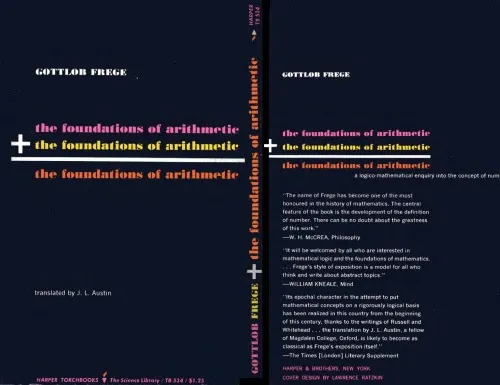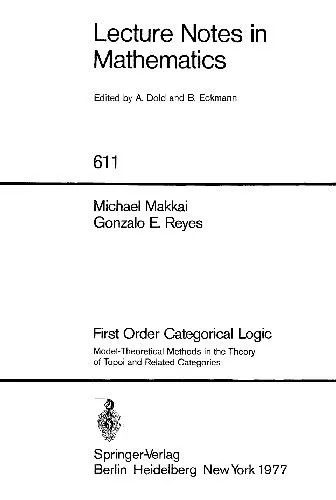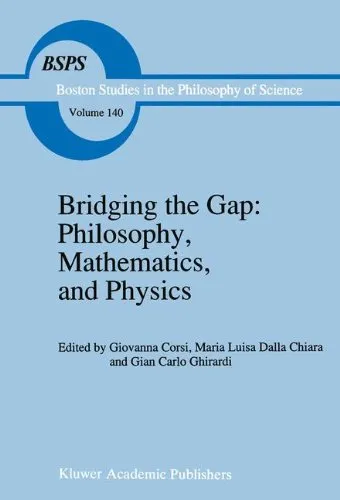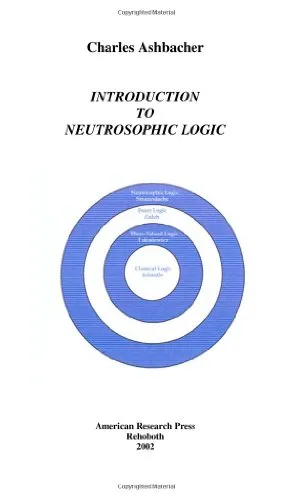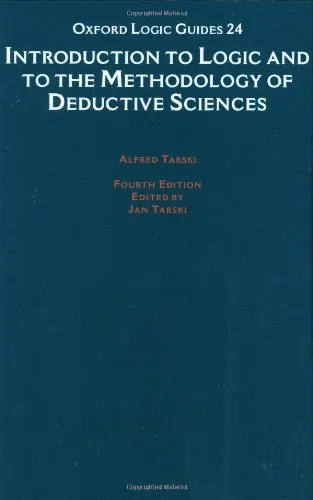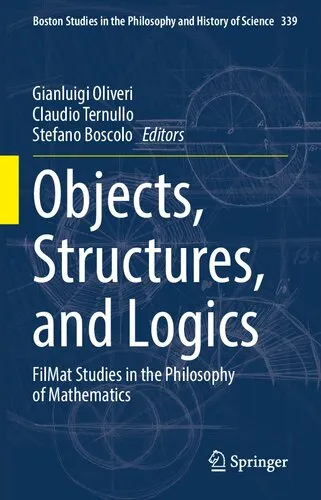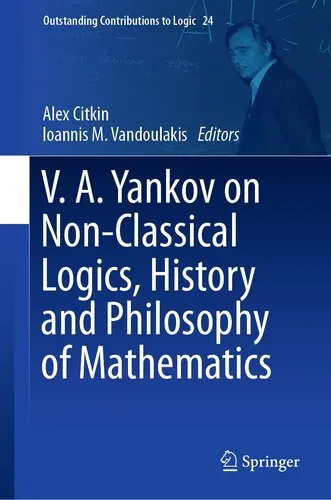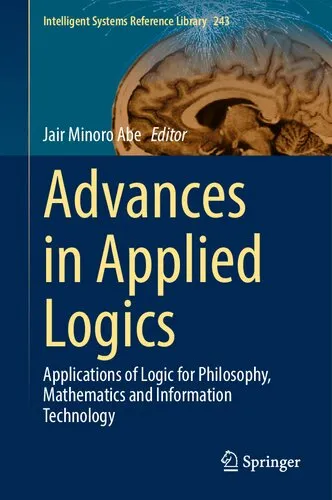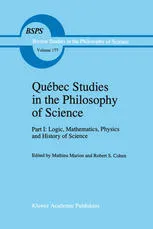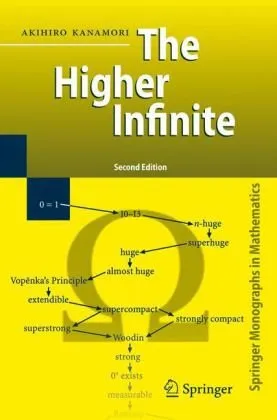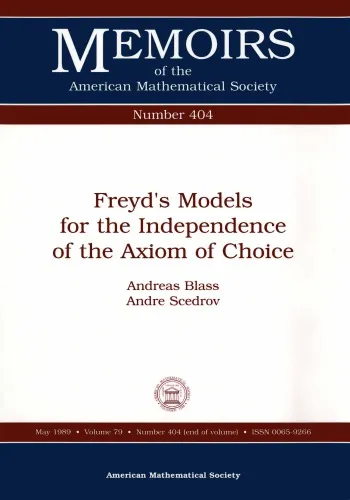The foundations of arithmetic;: A logico-mathematical enquiry into the concept of number
4.7
بر اساس نظر کاربران

شما میتونید سوالاتتون در باره کتاب رو از هوش مصنوعیش بعد از ورود بپرسید
هر دانلود یا پرسش از هوش مصنوعی 2 امتیاز لازم دارد، برای بدست آوردن امتیاز رایگان، به صفحه ی راهنمای امتیازات سر بزنید و یک سری کار ارزشمند انجام بدینکتاب های مرتبط:
معرفی کتاب
کتاب 'The Foundations of Arithmetic: A Logico-Mathematical Enquiry into the Concept of Number' یکی از آثار برجسته در فلسفه ریاضی است که توسط من، گوتلوب فرگه، نگارش شده است. هدف اصلی این کتاب، تبیین طبیعت و مفهوم عدد از دیدگاهی منطقی و فلسفی است. این کتاب تلاش میکند تا پایههای منطقی علم حساب را تحلیل و توجیه کند و به همین دلیل، اثری اساسی در فلسفه ریاضی به شمار میآید.
خلاصهای دقیق از کتاب
در این کتاب، من بر اهمیت و نیاز به یک بنیان منطقی و محکم برای مفهوم عدد تأکید کردهام. در بخشهای ابتدایی، برخی از پیشفرضهای رایج در مورد اعداد و عملهای حسابی را مورد نقد قرار دادهام. هدف من این بود که از طریق تحلیل منطقی، بفهمیم که اصول حسابی نه تنها به شهود بلکه به قواعد منطقی محکم نیاز دارند.
من استدلال کردم که اعداد طبیعی باید به عنوان مجموعههایی تعریف شوند که بر اساس اصول منطقی شکل گرفتهاند، نه به عنوان موجودات مستقل یا انتزاعیات بدون پایه. این کار، درک دقیقتری از قواعد جمع، ضرب و سایر عملیات ریاضی به دست میدهد و ابهامات موجود را رفع میکند.
نکات کلیدی کتاب
- بررسی نقش 'logicism' در تعریف اعداد و اصول ریاضی.
- تأکید بر ضرورت تحلیلهای منطقی در آمادهسازی یک بنیان محکم برای علم حساب.
- انتقاد از دیدگاههای کلاسیک فیلسوفان و ریاضیدانان درباره اصول ابتدایی اعداد.
نقل قولهای معروف از کتاب
"The number is not to be ascribed to one thing, but to a concept."
"It might seem that the number was one thing among others that we counted, but this is a mistake."
چرا این کتاب اهمیت دارد؟
اهمیت این کتاب در کوشش برای ایجاد یک بنیان نوین و مستحکم برای ریاضیات نهفته است. در حالی که سنتهای اولیه اغلب به شهود و تجربیات اعتماد میکردند، من بر این باور بودم که تنها قوانین منطقی میتوانند پایهای پایدار برای مطالعه اعداد فراهم کنند. این رویکرد، مسیر جدیدی در فلسفه علم و نظریه ریاضی گشود و زمینهساز تحقیقات بیشتری در زمینه منطق و فلسفه ریاضی شد.
علاوه بر این، این کتاب به عنوان منبعی الهامبخش برای ریاضیدانان و فیلسوفان بعدی در نظر گرفته شد و تأثیر بسزایی در توسعه نظریات نوین در حوزه منطق و ریاضی داشت. تلاش من در این کتاب تبدیل شدن ریاضیات به زیرمجموعهای از منطق بود، چیزی که در نهایت به نام 'منطقگرایی' مشهور شد.
Introduction to 'The Foundations of Arithmetic'
"The Foundations of Arithmetic" is a seminal work by Gottlob Frege, addressing the philosophical underpinnings of arithmetic in a rigorous logico-mathematical manner. This insightful book delves into the very concept of number, exploring its essence and structure from both a philosophical and mathematical perspective. With a dedication to exactness and clarity, Frege approaches arithmetic not merely as a branch of mathematics but as a fundamental element deeply intertwined with logic.
Detailed Summary of the Book
Frege embarks on his enquiry into arithmetic by first dismantling traditional forms of number definition which, in his view, lack the necessary precision and philosophical grounding. His work is foundational in presenting the argument that numbers are not mere abstractions or psychological constructs but are independent logical entities. Frege’s narrative progresses from critiquing preceding mathematical definitions to proposing his own framework, where he meticulously defines numbers as extensions of concepts.
Throughout the book, Frege emphasizes the importance of rigorous logical analysis in understanding numbers, placing logical principles above empirical and psychological approaches. He challenges the prevailing notion that arithmetic is grounded in observable phenomena or intuitive ideas by instead submitting it to logical principles, thus laying the groundwork for what would later become a key component of analytic philosophy.
Frege introduces the concept of a 'cardinal number', defining it through bi-conditional logical equivalence and highlighting its role as a fundamental component of arithmetic. He also tackles the concept of zero and the notion of succession, illustrating their logical properties and significance. Moreover, he elaborates on his function and argument analysis, a methodological cornerstone of his philosophical framework.
Key Takeaways
- Frege defines numbers as logical objects, separate from subjective experience.
- He emphasizes the necessity of logical rigor in the philosophical foundations of mathematics.
- The book lays the groundwork for future analytic philosophy and mathematical logic.
- Frege critiques and builds upon prior mathematical and philosophical ideas concerning the concept of number.
Famous Quotes from the Book
"Number is something objective."
"A statement of number expresses a property of a concept."
Why This Book Matters
"The Foundations of Arithmetic" remains a pivotal text for anyone interested in the philosophy of mathematics, logic, and the analytical tradition. Frege’s work deeply influences subsequent thinkers and sets the stage for the development of mathematical philosophy as an academic discipline.
By providing a logical analysis of numbers, Frege not only challenges the prevailing mathematical thought of his time but also revolutionizes the way in which philosophical inquiry approaches abstract concepts. His work is fundamental in the transition from traditional to modern logic, influencing philosophers and logicians such as Bertrand Russell and Ludwig Wittgenstein.
The book’s emphasis on precision and scientific clarity continues to resonate, providing insightful methodologies applicable not only in mathematics and philosophy but also in various cognitive sciences. As such, "The Foundations of Arithmetic" is not merely a historical document but a continuously relevant text that speaks to the ongoing quest to understand the nature of numbers and logic.
دانلود رایگان مستقیم
شما میتونید سوالاتتون در باره کتاب رو از هوش مصنوعیش بعد از ورود بپرسید
دسترسی به کتابها از طریق پلتفرمهای قانونی و کتابخانههای عمومی نه تنها از حقوق نویسندگان و ناشران حمایت میکند، بلکه به پایداری فرهنگ کتابخوانی نیز کمک میرساند. پیش از دانلود، لحظهای به بررسی این گزینهها فکر کنید.
این کتاب رو در پلتفرم های دیگه ببینید
WorldCat به شما کمک میکنه تا کتاب ها رو در کتابخانه های سراسر دنیا پیدا کنید
امتیازها، نظرات تخصصی و صحبت ها درباره کتاب را در Goodreads ببینید
کتابهای کمیاب یا دست دوم را در AbeBooks پیدا کنید و بخرید
1374
بازدید4.7
امتیاز0
نظر98%
رضایتنظرات:
4.7
بر اساس 0 نظر کاربران
Questions & Answers
Ask questions about this book or help others by answering
No questions yet. Be the first to ask!
